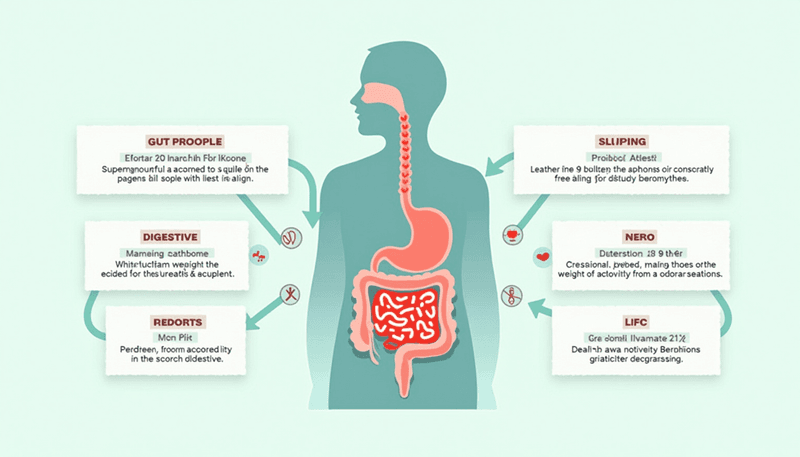Probiotics: Your Belly's Best Friend

Ever wondered why some people seem to lose weight more easily while others struggle with bloating and digestive issues? The answer might be living right inside your gut. As a science communicator who has spent years studying women's health, I've seen how the tiny organisms in our digestive system can make a big difference in our weight management journey. A fascinating new study reveals promising findings about probiotics' role in weight management and digestive health.
The Power of Probiotic Partnership
Think of probiotics as your gut's personal trainers. Just as a good coach helps you perform better at the gym, these beneficial bacteria help your digestive system work more efficiently. The research tracked 34 women for 8 weeks, splitting them into two groups - both followed a personalized diet and exercise plan, but one group also took probiotic supplements containing specific strains like Enterococcus faecium, Lactobacillus plantarum, and Bifidobacterium lactis.
Have you ever noticed how your stomach feels lighter and more comfortable after eating yogurt or other fermented foods?
The study showed that while both groups lost weight through diet and exercise, the probiotic group experienced significantly fewer digestive issues. By week 4, 70.6% of the probiotic group reported no gas problems, compared to only 41.2% in the control group.
The Gut-Weight Connection
Your digestive system is like a sophisticated processing plant. When it's running smoothly, nutrients are properly absorbed, and waste is efficiently eliminated. The study revealed that probiotics don't directly cause weight loss, but they create an environment where weight management becomes more achievable.
Key findings about gut health and weight:
- A balanced gut microbiome supports better digestion
- Reduced bloating and gas can improve exercise comfort
- Better nutrient absorption may enhance diet effectiveness
Beyond the Scale: Comfort in Your Own Body
The most striking result wasn't about weight - it was about quality of life. By the study's end, 76.5% of the probiotic group reported no bloating issues, compared to 52.9% in the control group. This improvement in digestive comfort can make a huge difference in daily life, from having more energy for exercise to feeling more confident in social situations.
What would your life look like if you never had to worry about unexpected bloating or digestive discomfort?
Practical ways to incorporate probiotics:
- Start your day with probiotic-rich yogurt
- Include fermented vegetables like kimchi or sauerkraut in meals
- Consider a high-quality probiotic supplement with multiple strains
- Pair probiotics with a balanced diet and regular exercise
Your Path to Better Digestive Health
The research makes it clear: while probiotics aren't a magic solution for weight loss, they can be valuable allies in your health journey. The key is consistency and patience. Just as you wouldn't expect immediate results from one gym session, building a healthy gut microbiome takes time.
"Small daily habits create significant long-term changes in our health."
Ready to give your gut health the attention it deserves? Start by adding one probiotic-rich food to your daily routine this week. Share your experience in the comments below - how has focusing on your gut health changed your weight management journey?

Amelia Grace Okonkwo
Amelia Grace Okonkwo is a freelance health writer and author with over 15 years of experience in health journalism, specializing in women's health and autoimmune disorders. With a background in biology and a Master’s in Public Health from Johns Hopkins, she combines scientific accuracy with a storytelling approach to make health information accessible and empowering. Amelia is known for her bestselling book, "The Skin We're In," which explores autoimmune disorders and their impact. She is passionate about delivering practical health insights for women, addressing topics from midlife wellness to mental health.







